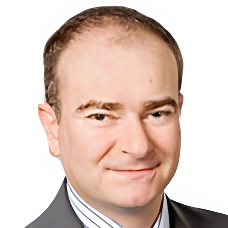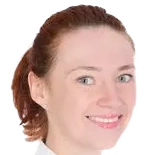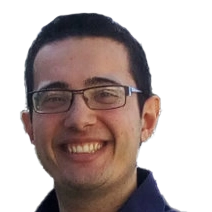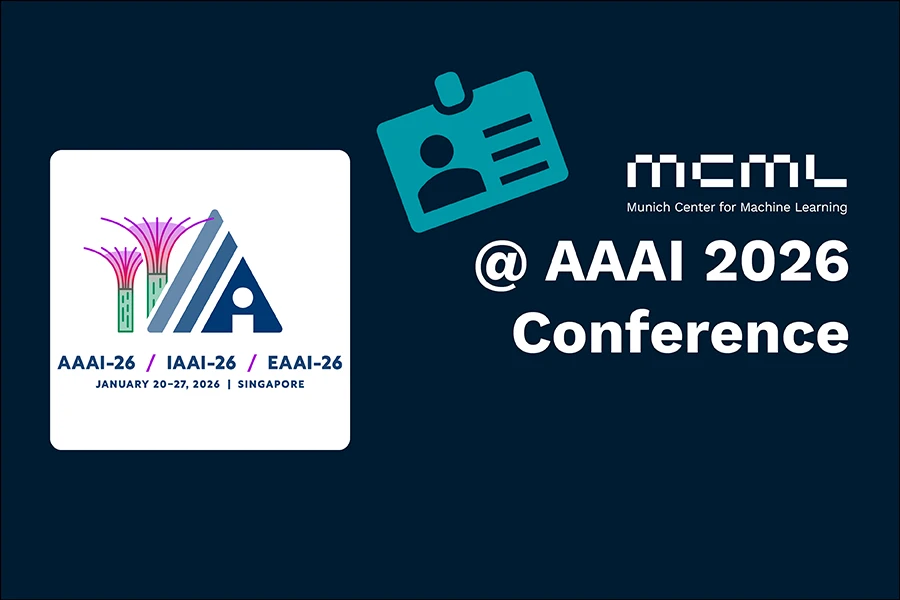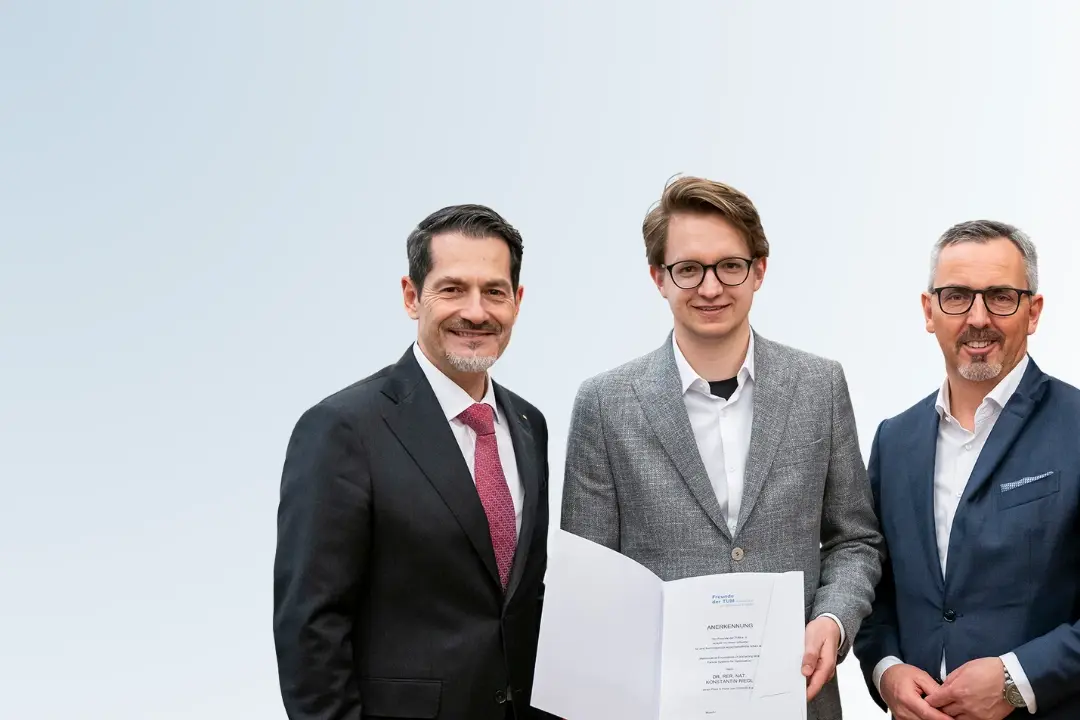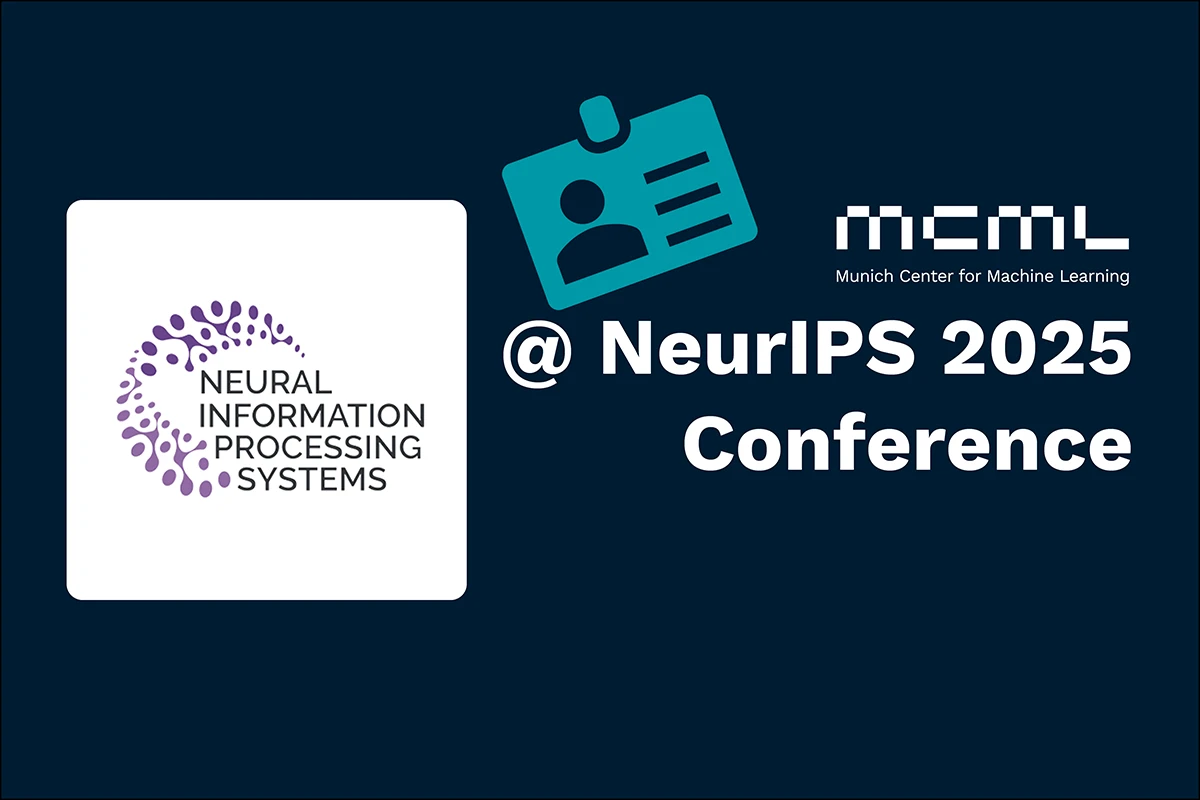Research Group Massimo Fornasier
Massimo Fornasier
holds the Chair of Applied Numerical Analysis at TU Munich.
His embraces a broad spectrum of problems in mathematical modeling, analysis and numerical analysis. He is particularly interested in the concept of compression as appearing in different forms in data analysis, image and signal processing, and in the adaptive numerical solutions of partial differential equations or high-dimensional optimization problems.
Team members @MCML
PostDocs
PhD Students
Recent News @MCML
Publications @MCML
2026
[55]
M. Fornasier • H. Huang • J. Klemenc • G. Malaspina
From Consensus-Based Optimization to Evolution Strategies: Proof of Global Convergence.
Preprint (Feb. 2026). arXiv
From Consensus-Based Optimization to Evolution Strategies: Proof of Global Convergence.
Preprint (Feb. 2026). arXiv
[54]
J. Maly • A. Veselovska
Reliable one-bit quantization of bandlimited graph data via single-shot noise shaping.
Preprint (Feb. 2026). arXiv
Reliable one-bit quantization of bandlimited graph data via single-shot noise shaping.
Preprint (Feb. 2026). arXiv
[53]

C. Fiedler
Statistical Learning Theory for Distributional Classification.
AAAI 2026 - 40th Conference on Artificial Intelligence. Singapore, Jan 20-27, 2026. To be published. Preprint available. arXiv
Statistical Learning Theory for Distributional Classification.
AAAI 2026 - 40th Conference on Artificial Intelligence. Singapore, Jan 20-27, 2026. To be published. Preprint available. arXiv
[52]

M. Fornasier • J. Klemenc • A. Scagliotti
Trade-off Invariance Principle for Minimizers of Regularized Functionals.
Journal of Optimization Theory and Applications 208.78. Jan. 2026. DOI
Trade-off Invariance Principle for Minimizers of Regularized Functionals.
Journal of Optimization Theory and Applications 208.78. Jan. 2026. DOI
[51]
2025
[50]
C. Geldhauser • M. Herrmann • D. Janßen
Traveling Phase Interfaces in Viscous Forward–Backward Diffusion Equations.
Journal of Dynamics and Differential Equations.4. Dec. 2025. DOI
Traveling Phase Interfaces in Viscous Forward–Backward Diffusion Equations.
Journal of Dynamics and Differential Equations.4. Dec. 2025. DOI
[49]
M. Mollenhauer • C. Fiedler
Fuk-Nagaev inequality in smooth Banach spaces: Optimum bounds for distributions of heavy-tailed martingales.
Preprint (Dec. 2025). arXiv
Fuk-Nagaev inequality in smooth Banach spaces: Optimum bounds for distributions of heavy-tailed martingales.
Preprint (Dec. 2025). arXiv
[48]

P.-F. Massiani • C. Fiedler • L. Haverbeck • F. Solowjow • S. Trimpe
Kernel conditional tests from learning-theoretic bounds.
NeurIPS 2025 - 39th Conference on Neural Information Processing Systems. San Diego, CA, USA, Nov 30-Dec 07, 2025. To be published. Preprint available. URL
Kernel conditional tests from learning-theoretic bounds.
NeurIPS 2025 - 39th Conference on Neural Information Processing Systems. San Diego, CA, USA, Nov 30-Dec 07, 2025. To be published. Preprint available. URL
[47]
C. Fiedler • A. Scagliotti
Towards optimal control of ensembles of discrete-time systems.
Preprint (Nov. 2025). arXiv
Towards optimal control of ensembles of discrete-time systems.
Preprint (Nov. 2025). arXiv
[46]
L. Sacchelli • A. Scagliotti
A case study in ensemble optimal control for Bayesian input design.
Preprint (Nov. 2025). arXiv
A case study in ensemble optimal control for Bayesian input design.
Preprint (Nov. 2025). arXiv
[45]

O. Åström • C. Geldhauser • M. Grillitsch • O. Hall • A. Sopasakis
Enhancing Carbon Emission Reduction Strategies using OCO and ICOS data.
Scientific Reports 15.36297. Oct. 2025. DOI
Enhancing Carbon Emission Reduction Strategies using OCO and ICOS data.
Scientific Reports 15.36297. Oct. 2025. DOI
[44]
M. Fornasier • L. Sun • R. Ward
Large-Time Analysis of the Langevin Dynamics for Energies Fulfilling Polyak-Lojasiewicz Conditions.
Preprint (Oct. 2025). arXiv
Large-Time Analysis of the Langevin Dynamics for Energies Fulfilling Polyak-Lojasiewicz Conditions.
Preprint (Oct. 2025). arXiv
[43]
C. Fiedler • S. Trimpe
On the Analysis of Suboptimal Nonlinear Model Predictive Control Schemes Without Terminal Constraints.
IEEE Control Systems Letters 9. Sep. 2025. DOI
On the Analysis of Suboptimal Nonlinear Model Predictive Control Schemes Without Terminal Constraints.
IEEE Control Systems Letters 9. Sep. 2025. DOI
[42]
A. Scagliotti • S. Farinelli
Normalizing flows as approximations of optimal transport maps via linear-control neural ODEs.
Nonlinear Analysis 257.113811. Aug. 2025. DOI
Normalizing flows as approximations of optimal transport maps via linear-control neural ODEs.
Nonlinear Analysis 257.113811. Aug. 2025. DOI
[41]
A. Veselovska • J. Prestin
Super-resolution via Prony-Type Polynomials.
SampTA 2025 - 15th International Conference on Sampling Theory and Applications. Vienna, Austria, Jul 28-Aug 01, 2025. To be published. Preprint available. DOI
Super-resolution via Prony-Type Polynomials.
SampTA 2025 - 15th International Conference on Sampling Theory and Applications. Vienna, Austria, Jul 28-Aug 01, 2025. To be published. Preprint available. DOI
[40]
A. Scagliotti • S. Farinelli
Normalizing flows as approximations of optimal transport maps via linear-control neural ODEs.
VC 2025 - 16th Viennese Conference on Optimal Control and Dynamic Games. Vienna, Austria, Jul 15-18, 2025. To be published. Preprint available. DOI
Normalizing flows as approximations of optimal transport maps via linear-control neural ODEs.
VC 2025 - 16th Viennese Conference on Optimal Control and Dynamic Games. Vienna, Austria, Jul 15-18, 2025. To be published. Preprint available. DOI
[39]

S. Karnik • A. Veselovska • M. Iwen • F. Krahmer
Implicit Regularization for Tubal Tensor Factorizations via Gradient Descent.
ICML 2025 - 42nd International Conference on Machine Learning. Vancouver, Canada, Jul 13-19, 2025. URL
Implicit Regularization for Tubal Tensor Factorizations via Gradient Descent.
ICML 2025 - 42nd International Conference on Machine Learning. Vancouver, Canada, Jul 13-19, 2025. URL
[38]
E. Pozzoli • A. Scagliotti
Approximation of diffeomorphisms for quantum state transfers.
IEEE Control Systems Letters Early Access. Jun. 2025. DOI
Approximation of diffeomorphisms for quantum state transfers.
IEEE Control Systems Letters Early Access. Jun. 2025. DOI
[37]

K. Jin • J. Latz • C. Liu • A. Scagliotti
Losing momentum in continuous-time stochastic optimisation.
Journal of Machine Learning Research 26.148. Jun. 2025. URL
Losing momentum in continuous-time stochastic optimisation.
Journal of Machine Learning Research 26.148. Jun. 2025. URL
[36]
M. Rauscher • A. Scagliotti • F. Pagginelli Patricio
Shortest-path recovery from signature with an optimal control approach.
Mathematics of Control, Signals, and Systems 37. Jun. 2025. DOI
Shortest-path recovery from signature with an optimal control approach.
Mathematics of Control, Signals, and Systems 37. Jun. 2025. DOI
[35]
S. Almi • M. Fornasier • J. Klemenc • A. Scagliotti
Balanced quasistatic evolutions of critical points in metric spaces.
Preprint (Jun. 2025). arXiv
Balanced quasistatic evolutions of critical points in metric spaces.
Preprint (Jun. 2025). arXiv
[34]
C. Cipriani • M. Fornasier • A. Scagliotti
From NeurODEs to AutoencODEs: a mean-field control framework for width-varying Neural Networks.
European Journal of Applied Mathematics 36.Special Issue 2: From integro-differential models to data-oriented approaches for emergent phenomena. Apr. 2025. DOI
From NeurODEs to AutoencODEs: a mean-field control framework for width-varying Neural Networks.
European Journal of Applied Mathematics 36.Special Issue 2: From integro-differential models to data-oriented approaches for emergent phenomena. Apr. 2025. DOI
[33]
M. Fornasier • P. Richtárik • K. Riedl • L. Sun
Consensus-Based Optimization with Truncated Noise.
European Journal of Applied Mathematics 36.Special Issue 2: From integro-differential models to data-oriented approaches for emergent phenomena. Apr. 2025. DOI
Consensus-Based Optimization with Truncated Noise.
European Journal of Applied Mathematics 36.Special Issue 2: From integro-differential models to data-oriented approaches for emergent phenomena. Apr. 2025. DOI
[32]

M. Fornasier • P. Heid • G. E. Sodini
Approximation Theory, Computing, and Deep Learning on the Wasserstein Space.
Mathematical Models and Methods in Applied Sciences 34.4. Apr. 2025. DOI
Approximation Theory, Computing, and Deep Learning on the Wasserstein Space.
Mathematical Models and Methods in Applied Sciences 34.4. Apr. 2025. DOI
[31]
L. Sun
Well-posedness and L1−Lp Smoothing Effect of the Porous Media Equation under Poincaré Inequality.
Preprint (Apr. 2025). arXiv
Well-posedness and L1−Lp Smoothing Effect of the Porous Media Equation under Poincaré Inequality.
Preprint (Apr. 2025). arXiv
[30]
F. Krahmer • A. Veselovska
The mathematics of dots and pixels: On the theoretical foundations of image halftoning.
GAMM Mitteilungen 48.1. Mar. 2025. DOI
The mathematics of dots and pixels: On the theoretical foundations of image halftoning.
GAMM Mitteilungen 48.1. Mar. 2025. DOI
[29]
M. Herold • J. S. Jehle • F. Krahmer • A. Veselovska
Non-intrusive surrogate modelling using sparse random features with applications in crashworthiness analysis.
International Journal for Uncertainty Quantification 15.4. Mar. 2025. DOI
Non-intrusive surrogate modelling using sparse random features with applications in crashworthiness analysis.
International Journal for Uncertainty Quantification 15.4. Mar. 2025. DOI
[28]
A. Scagliotti • F. Scagliotti • L. Locati • F. Sottotetti
Ensemble optimal control for managing drug resistance in cancer therapies.
Preprint (Mar. 2025). arXiv
Ensemble optimal control for managing drug resistance in cancer therapies.
Preprint (Mar. 2025). arXiv
[27]

M. Fornasier • L. Sun
A PDE Framework of Consensus-Based Optimization for Objectives with Multiple Global Minimizers.
Communications in Partial Differential Equations 50.4. Feb. 2025. DOI
A PDE Framework of Consensus-Based Optimization for Objectives with Multiple Global Minimizers.
Communications in Partial Differential Equations 50.4. Feb. 2025. DOI
[26]
M. Fornasier • L. Sun
Regularity and positivity of solutions of the Consensus-Based Optimization equation: unconditional global convergence.
Preprint (Feb. 2025). arXiv
Regularity and positivity of solutions of the Consensus-Based Optimization equation: unconditional global convergence.
Preprint (Feb. 2025). arXiv
[25]
M. Fornasier • J. Klemenc • A. Scagliotti
Trade-off Invariance Principle for minimizers of regularized functionals.
Math4AiMl 2025 - 3rd Workshop of UMI Group Mathematics for Artificial Intelligence and Machine Learning. Bari, Italy, Jan 29-31, 2025. arXiv PDF
Trade-off Invariance Principle for minimizers of regularized functionals.
Math4AiMl 2025 - 3rd Workshop of UMI Group Mathematics for Artificial Intelligence and Machine Learning. Bari, Italy, Jan 29-31, 2025. arXiv PDF
[24]

A. Scagliotti
Minimax Problems for Ensembles of Control-Affine Systems.
SIAM Journal on Control and Optimization 63.1. Jan. 2025. DOI
Minimax Problems for Ensembles of Control-Affine Systems.
SIAM Journal on Control and Optimization 63.1. Jan. 2025. DOI
2024
[23]

A. Bonfanti • G. Bruno • C. Cipriani
The Challenges of the Nonlinear Regime for Physics-Informed Neural Networks.
NeurIPS 2024 - 38th Conference on Neural Information Processing Systems. Vancouver, Canada, Dec 10-15, 2024. URL
The Challenges of the Nonlinear Regime for Physics-Informed Neural Networks.
NeurIPS 2024 - 38th Conference on Neural Information Processing Systems. Vancouver, Canada, Dec 10-15, 2024. URL
[22]
C. Geldhauser • C. Kuehn
Travelling waves for discrete stochastic bistable equations.
Partial Differential Equations and Applications 5.35. Nov. 2024. DOI
Travelling waves for discrete stochastic bistable equations.
Partial Differential Equations and Applications 5.35. Nov. 2024. DOI
[21]
K. Riedl
Mathematical Foundations of Interacting Multi-Particle Systems for Optimization.
Dissertation TU München. Sep. 2024. URL
Mathematical Foundations of Interacting Multi-Particle Systems for Optimization.
Dissertation TU München. Sep. 2024. URL
[20]
C. Geldhauser • K. Malyshev
Semi-automatic annotation of Greek majuscule manuscripts: Steps towards integrated transcription and annotation.
FedCSIS 2024 - 19th Conference on Computer Science and Intelligence Systems. Belgrade, Serbia, Sep 08-11, 2024. DOI
Semi-automatic annotation of Greek majuscule manuscripts: Steps towards integrated transcription and annotation.
FedCSIS 2024 - 19th Conference on Computer Science and Intelligence Systems. Belgrade, Serbia, Sep 08-11, 2024. DOI
[19]

M. Fornasier • T. Klock • K. Riedl
Consensus-Based Optimization Methods Converge Globally.
SIAM Journal on Optimization 34.3. Jul. 2024. DOI
Consensus-Based Optimization Methods Converge Globally.
SIAM Journal on Optimization 34.3. Jul. 2024. DOI
[18]
J. Beddrich • E. Chenchene • M. Fornasier • H. Huang • B. Wohlmuth
Constrained Consensus-Based Optimization and Numerical Heuristics for the Few Particle Regime.
Preprint (Jul. 2024). arXiv
Constrained Consensus-Based Optimization and Numerical Heuristics for the Few Particle Regime.
Preprint (Jul. 2024). arXiv
[17]
C. Cipriani • A. Scagliotti • T. Wöhrer
A Minimax Optimal Control Approach for Robust Neural ODEs.
ECC 2024 - European Control Conference. Stockholm, Sweden, Jun 25-28, 2024. DOI
A Minimax Optimal Control Approach for Robust Neural ODEs.
ECC 2024 - European Control Conference. Stockholm, Sweden, Jun 25-28, 2024. DOI
[16]
A. Scagliotti • P. Colli Franzone
A subgradient method with constant step-size for l1-composite optimization.
Bollettino dell’Unione Matematica Italiana 17. Jun. 2024. DOI
A subgradient method with constant step-size for l1-composite optimization.
Bollettino dell’Unione Matematica Italiana 17. Jun. 2024. DOI
[15]

M. Brunner • M. Innerberger • A. Miraçi • D. Praetorius • J. Streitberger • P. Heid
Adaptive FEM with quasi-optimal overall cost for nonsymmetric linear elliptic PDEs.
IMA Journal of Numerical Analysis 44.3. May. 2024. DOI
Adaptive FEM with quasi-optimal overall cost for nonsymmetric linear elliptic PDEs.
IMA Journal of Numerical Analysis 44.3. May. 2024. DOI
[14]
R. Bailo • A. Barbaro • S. N. Gomes • K. Riedl • T. Roith • C. Totzeck • U. Vaes
CBX: Python and Julia packages for consensus-based interacting particle methods.
Preprint (Mar. 2024). arXiv
CBX: Python and Julia packages for consensus-based interacting particle methods.
Preprint (Mar. 2024). arXiv
[13]
C. Geldhauser • H. Diebel-Fischer
Is diverse and inclusive AI trapped in the gap between reality and algorithmizability?
NLDL 2024 - Northern Lights Deep Learning Conference. Tromsø, Norway, Jan 09-11, 2024. URL
Is diverse and inclusive AI trapped in the gap between reality and algorithmizability?
NLDL 2024 - Northern Lights Deep Learning Conference. Tromsø, Norway, Jan 09-11, 2024. URL
2023
[12]
F. Filbir • M. Tasche • A. Veselovska
Regularized Shannon sampling formulas related to the special affine Fourier transform.
Preprint (Nov. 2023). arXiv
Regularized Shannon sampling formulas related to the special affine Fourier transform.
Preprint (Nov. 2023). arXiv
[11]
K. Riedl
Leveraging Memory Effects and Gradient Information in Consensus-Based Optimisation: On Global Convergence in Mean-Field Law.
European Journal of Applied Mathematics. Oct. 2023. DOI
Leveraging Memory Effects and Gradient Information in Consensus-Based Optimisation: On Global Convergence in Mean-Field Law.
European Journal of Applied Mathematics. Oct. 2023. DOI
[10]
P. Heid
A damped Kačanov scheme for the numerical solution of a relaxed p(x)-Poisson equation.
Partial Differential Equations and Applications 4.40. Aug. 2023. DOI
A damped Kačanov scheme for the numerical solution of a relaxed p(x)-Poisson equation.
Partial Differential Equations and Applications 4.40. Aug. 2023. DOI
[9]
F. Krahmer • H. Lyu • R. Saab • A. Veselovska • R. Wang
Quantization of Bandlimited Graph Signals.
SampTA 2023 - 14th International Conference on Sampling Theory and Applications. Yale, CT, USA, Jul 10-14, 2023. DOI
Quantization of Bandlimited Graph Signals.
SampTA 2023 - 14th International Conference on Sampling Theory and Applications. Yale, CT, USA, Jul 10-14, 2023. DOI
[8]
F. Krahmer • A. Veselovska
Digital Halftoning via Mixed-Order Weighted Σ∆ Modulation.
SampTA 2023 - 14th International Conference on Sampling Theory and Applications. Yale, CT, USA, Jul 10-14, 2023. DOI
Digital Halftoning via Mixed-Order Weighted Σ∆ Modulation.
SampTA 2023 - 14th International Conference on Sampling Theory and Applications. Yale, CT, USA, Jul 10-14, 2023. DOI
[7]

F. Krahmer • A. Veselovska
Enhanced Digital Halftoning via Weighted Sigma-Delta Modulation.
SIAM Journal on Imaging Sciences 16.3. Jul. 2023. DOI
Enhanced Digital Halftoning via Weighted Sigma-Delta Modulation.
SIAM Journal on Imaging Sciences 16.3. Jul. 2023. DOI
[6]
K. Riedl • T. Klock • C. Geldhauser • M. Fornasier
Gradient is All You Need?
Preprint (Jun. 2023). arXiv
Gradient is All You Need?
Preprint (Jun. 2023). arXiv
[5]
H. Huang • J. Qiu • K. Riedl
On the global convergence of particle swarm optimization methods.
Applied Mathematics and Optimization 88.2. May. 2023. DOI
On the global convergence of particle swarm optimization methods.
Applied Mathematics and Optimization 88.2. May. 2023. DOI
[4]
P. Heid
A short note on an adaptive damped Newton method for strongly monotone and Lipschitz continuous operator equations.
Archiv der Mathematik. Mar. 2023. URL
A short note on an adaptive damped Newton method for strongly monotone and Lipschitz continuous operator equations.
Archiv der Mathematik. Mar. 2023. URL
[3]
A. Scagliotti
Optimal control of ensembles of dynamical systems.
ESAIM - Control, Optimisation and Calculus of Variations 29.22. Mar. 2023. DOI
Optimal control of ensembles of dynamical systems.
ESAIM - Control, Optimisation and Calculus of Variations 29.22. Mar. 2023. DOI
2022
[2]
H. Huang • J. Qiu • K. Riedl
Consensus-Based Optimization for Saddle Point Problems.
Preprint (Dec. 2022). arXiv
Consensus-Based Optimization for Saddle Point Problems.
Preprint (Dec. 2022). arXiv
[1]
©all images: LMU | TUM
